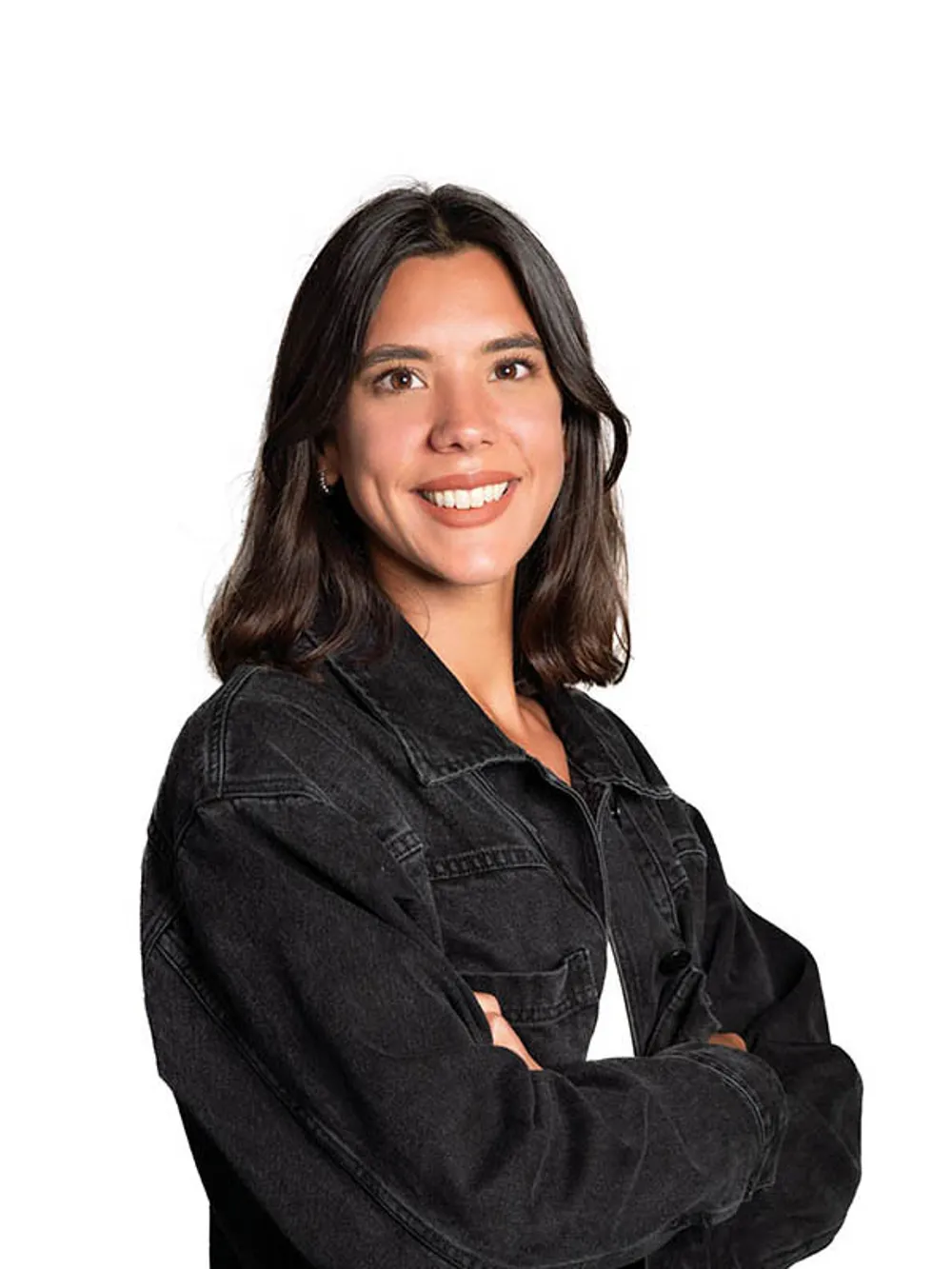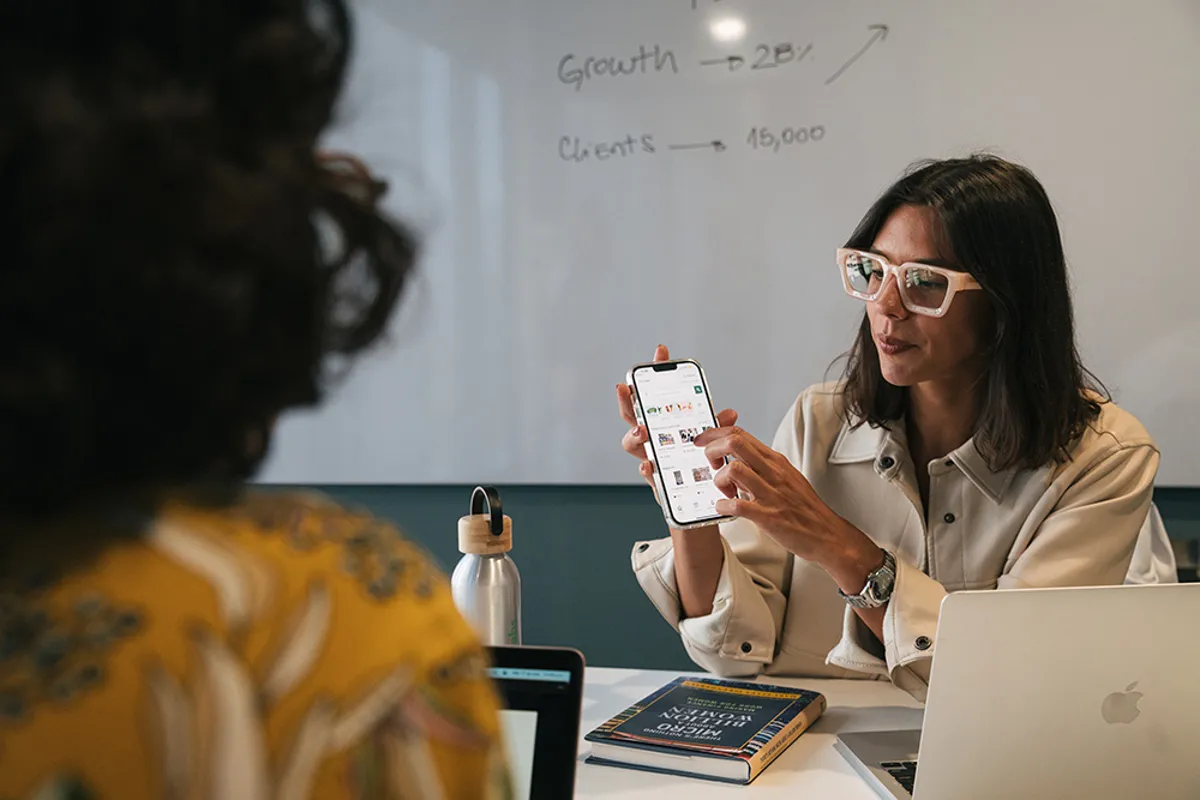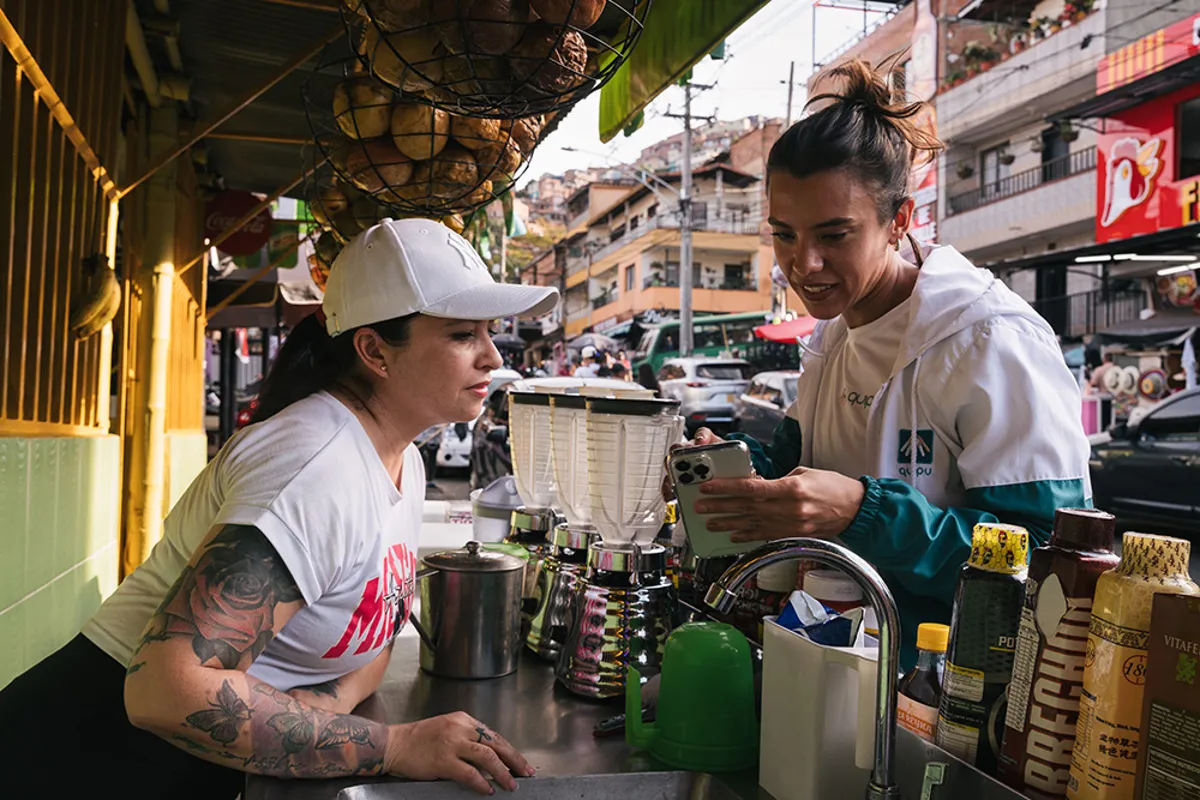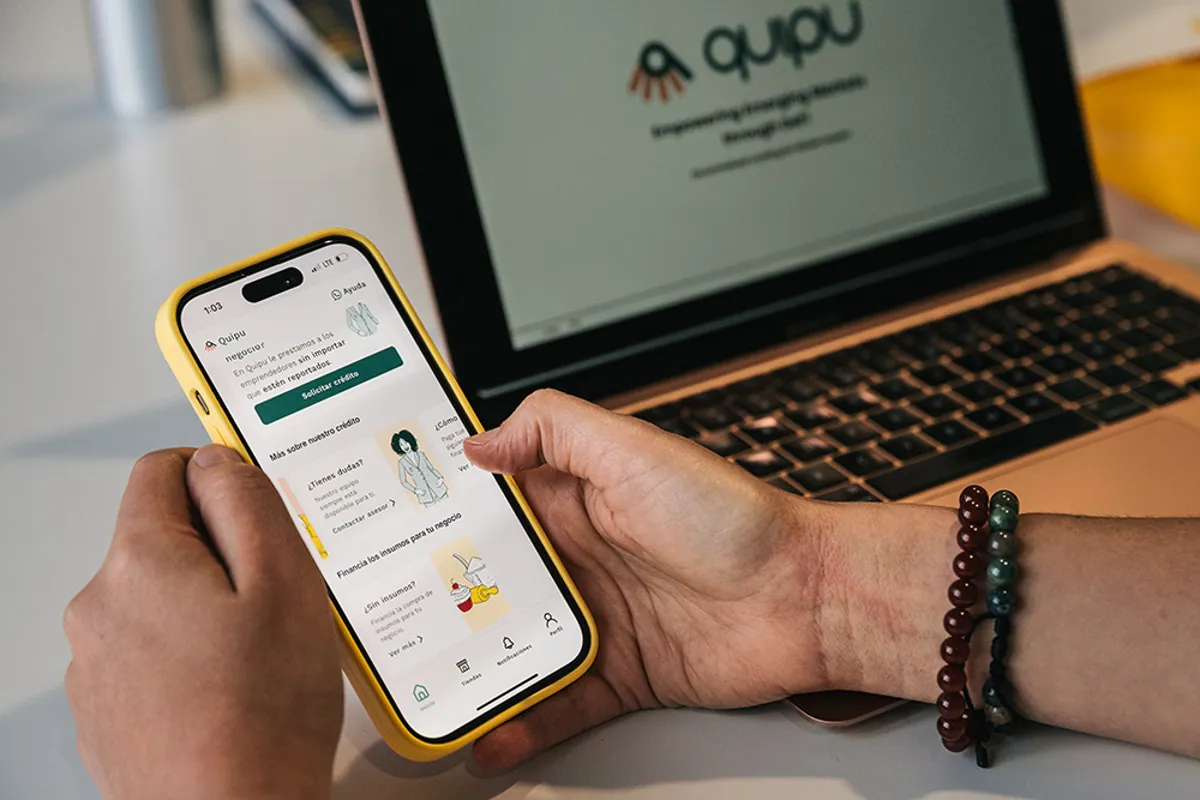Fellow Portrait
Mercedes Bidart
Quipu

Quipu provides financing for informal businesses in Latin America by building an equitable AI credit score.
Latin America and the Caribbean
Colombia
Fellow
2024
The funding gap in Colombia stymies the growth of microenterprises
Almost six million businesses in Colombia are classified as microenterprises operating with fewer than ten employees and a small amount of capital. Of those, only nine percent can borrow formally due to lack of information about their performance and absence of financial history, creating an enormous funding gap.
“People cannot access loans because they have unpaid past debt or they lent their ID to someone else who took a loan and didn't pay,” says Quipu founder Mercedes Bidart. “Their credit history is damaged, so the traditional way of assessing credit worthiness excludes them.” Mercedes founded Quipu to create a technology-based solution to help microbusinesses in low-income neighborhoods access credit and grow into small- or medium-sized enterprises.
It’s not about just giving you $10 so you can have food today. It’s about looking at the systemic issue that is bringing on these problems.

Quipu opens the flow of capital to neglected economic sectors
Quipu provides a financing platform and micro loans that allow these businesses to build an alternative credit score based on both financial and non-financial information. The company uses an alternative AI-based scoring method to assess creditworthiness. Through Quipu’s app, customers can apply in minutes for working capital that is disbursed in fewer than two days.
“My interest in this started when I was 19 and working for a microfinance institution,” Mercedes says. “I saw the opportunity to use technology because I was working on the same topic from the public policy and NGO angle.”
She quit her job, returned to Latin America, and dedicated herself full time to tackling these credit access challenges. “I understood the problem from working on the ground in the neighborhoods. My motivation is to grow economies that are left behind by the main economic system, starting by flowing capital from one space to others that have been left out.” Quipu accomplishes this by bridging the information gap that exists in the informal economy.
“Forty percent of our clients are women,” Mercedes explains. “The typical user is a woman who sells food from her home. Then there are people selling crafts or sewing clothing.”
A lot of customers tell us that Quipu was a door opening for them into the financial world.

Thousands of loans help Colombia’s small enterprises thrive
Quipu does business across all departments (groups of municipalities) in Colombia, with more than 17,000 community members, 7,000 credit clients, and 9,000 loans. Women make up more than 62 percent of the company’s loan portfolio and more than 60 percent of clients take on more than one loan, using Quipu as their cash flow support.
Mercedes highlights an early success story. “One of our first clients was a food seller whose whole family got sick because of COVID. When you work in the informal economy, if you get sick, then there's no income. They still had all the equipment they needed to cook but they didn't have money to buy supplies. They were blacklisted by the credit bureau. Quipu gave them a loan and they were able to restart the business.”
The client has since taken additional loans through Quipu, enabling the business not only to survive but to thrive.
The systemic issue is that the economy is made for people to be poor. How can we redesign the economy to make the financial system work for all of us?





